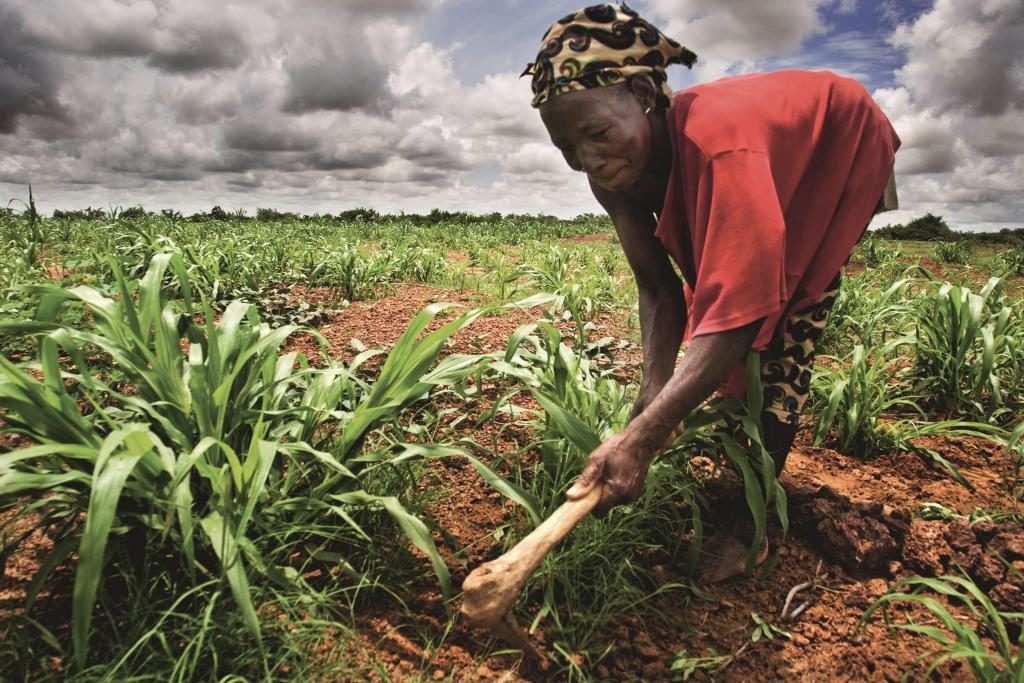Agriculture Behind Africa’s Health
No doubt, African nations, and institutions remain resolute in their quest for peace and prosperity.
As the African Development Bank (AfDB) takes ownership of this grand mission through its High 5 development priorities, the West Africa sub-region, host to the bank’s headquarters and the location of Africa’s poorest, largest and fastest growing economies, continues to be a source of cheer and sobriety in equal measure.
West Africa’s political, economic and investment climate has been inundated lately with news of the new government in Ghana settling down to the business of governance; the inglorious exit of Yahya Jammeh, the Gambian politician and former military officer who ruled The Gambia from 1994 to 2017; Cote d’Ivoire’s modest macroeconomic achievements, now hinged on its 2016-2020 National Development Plan; Liberia’s preparations for presidential elections in October and Nigeria’s ongoing struggles with the health of its inflation-prone economy.
Equally distressing for Nigerians is the deteriorating health of President Muhammadu Buhari, as they marked two years of his administration last month. While economic stagnation and inertia were the dominant features of Buhari’s first year in office, his second year has been riddled with political and policy spats between the legislature and executive. Buhari’s recurrent disappearing acts have also not helped matters. For the second time this year, he had to be flown to London for urgent medical attention at the beginning of May, heightening fears of his incapacity to lead and govern Africa’s largest economy by GDP ($594.28 billion as at 2016).
Sadly, it is difficult not to connect Buhari’s private and personal struggles with the economic and public affairs of the nation. His physical and cognitive absence from the administration and shenanigans of governance has turned out to be the defining character of his tenure so far. It is also a symbolic reflection of Nigeria’s inability to lead the rest of Africa as the continent pursues social and economic rejuvenation.
To attain its numerous lofty goals for the continent, the rest of Africa and the AfDB will need the democratic engine of the Nigerian nation firing on all cylinders. Ghana’s former president John Dramani Mahama once said if Nigeria sneezes, the rest of West Africa catches a cold. With approximately 184 million inhabitants, Nigeria accounts for 47% of West Africa’s population, and has one of the largest populations of youth in the world, according to the World Bank, which also expects 1% and 2.5% growth for Nigeria’s economy in 2017 and 2018, respectively.
Clearly, harnessing the energy and creativity of Africa’s youth will be key to transforming the continent’s fortunes over the next several decades. Also crucial is intra-Africa trade, currently at 12%. Africa needs to trade with Africa, increasing the exchange of goods, services and investment across our fragmented borders.
Linked to trade and Africa’s youthful population is bio-technology and Africa’s capacity to feed itself. When African heads of state gathered in the Indian city of Ahmedabad during the 17th annual general meeting of the AfDB last month, the future of agriculture in Africa was top of the agenda. While the continent is hoping to feed itself and eradicate malnutrition by 2025, the average age of farmers on the continent is currently 60 years.
AfDB President Akinwumi Adesina says: “There are opportunities to empower the youth at each stage of the agricultural value chain as ‘agripreneurs’. Young people are doing new and amazing things in the agricultural space all over the continent but need to be motivated.”
The Bank sought to showcase young African Agripreneurs during its week-long Indian meetings, hoping to prove the point that Africa’s youth can be catalysts for job and wealth creation. Between 2010 and 2015, it had deployed $5.5 billion in agriculture sector investments, covering a portfolio of 6,000 projects and youth operations in agriculture and allied industries in Cameroon, Sudan, Nigeria and several other countries. It is working with scientists at the International Institute for Tropical Agriculture (IITA) in Ibadan, Nigeria, to empower young farmers under the Empowering Novel Agri-Business-Led Employment (ENABLE) youth program.
Keen to replicate the trailblazing works he did as Nigeria’s agriculture minister between 2010 and 2015 across Africa, Adesina once told this writer, “My vision for Nigeria’s agriculture sector is that we will use agriculture to produce stupendous amount of wealth… and become an agriculturally industrialized economy.”
Let’s hope this vision comes true.




